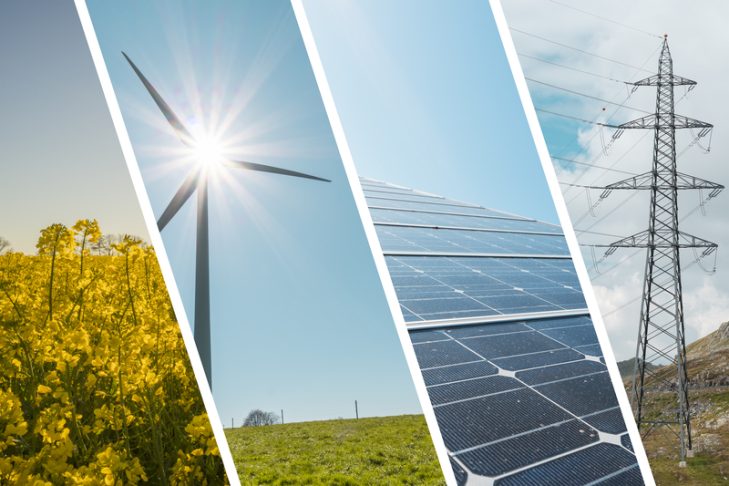The Romanian Photovoltaic Industry Association (RPIA) and the Romanian Wind Energy Association (RWEA), representing producers, developers and providers of services and equipment in the renewable energy sector, with a total installed power of over 5 GW, urgently request the authorities to ensure a legislative framework predictable and fair for grid connection of power generation projects, according to a release.
The call comes in the context of public consultations regarding the new draft Order of ANRE for the approval of the methodology regarding the allocation of the electricity network capacity for the connection of electricity production sites, which, in its current form, will generate significant dysfunctions in this sector already under enormous pressure.
RPIA, RWEA and related industries have submitted to ANRE, the Ministry of Energy and Transelectrica, starting from 2022, the proposal to introduce financial guarantees for connection to the grid, considering that this measure will remove existing blockages, such as very long approval periods.
However, it is fundamental that the mechanism is constituted in a form in which it helps investors and developers in competition with projects that block part of the capacity of the networks, which will also help to relieve transmission and distribution operators, which receive a large volume of connection requests, but not all of them have a purpose. An important element to be considered by the authorities is to assure the market that the mechanism of financial guarantees will not have the effect of sanctioning those investors and developers who, for objective reasons, such as the lack of response from the competent authorities, experience delays beyond their will in the approval process and project authorization.
In order for the network connection guarantees to have the intended effect, a transition period is necessary in the event of the implementation of a fundamental change. As a result, it is imperative that the mechanism is allowed to operate for a minimum of two years before any further decisions are made regarding the change in the connection process. Moreover, after this period, it is necessary to carry out a study, which will analyze the effect of the financial guarantees and attest to their success or failure, but also the need for some complementary elements or the return to the form before the changes.
The premature introduction of additional measures, such as capacity auctions, according to the draft order, in an unprepared market and in an advanced stage of transition (with many projects in various stages of development and materialization) is inopportune and likely to affect investments. Such a mechanism, radically different from the regulations in force, will have a considerable impact on the materialization of existing projects, leading to delays and, including, their abandonment, which may irreparably affect the achievement of the climate neutrality targets assumed by Romania.
In the context of the opinions expressed in the public space, caused by the debates on this regulatory initiative, we draw attention to the need to implement a uniform, fair legislative framework, valid for energy production projects, regardless of whether they belong to the public or private environment.
The exclusion of strategic “national interest” and “public” projects from the potential capacity auction mechanism is profoundly anti-competitive, especially considering that one of the main problems of the renewable energy industry is grid connection, a barrier recognized as such in the Council Report Competition and ANRE. We reiterate, in this way, that such a regulation, which also includes the previously mentioned derogation, is likely to irremediably disrupt competition on the market, with potential negative effects including on the price for final consumers, and affect the transition to sustainable energy.

